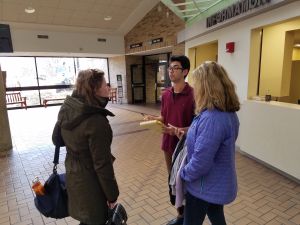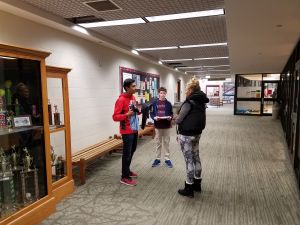In our entrepreneurship class, the students use a methodology called Lean LaunchPad, which is essentially the scientific method for business startups. Students begin by developing several hypotheses– about the product, value proposition, customer segments, channels for best reaching customers, and methods for building customer relationships. In other words, they make their best guesses about what might work as a viable business model–one that is sustainable and scalable. What happens next is the students test their hypotheses. They need to get out of the building, interview real people, and learn more about what the customers actually want or need.
 In this class, missing the mark is not a failure, it’s an expectation. No matter how excited an entrepreneur might be about a product, he or she is not really going to know the actual product market fit without real evidence to test the original assumptions. This brings about an ongoing cycle of creating hypotheses, testing them, making iterations or pivots in the value proposition and product design, and then testing the new hypotheses all over again.
In this class, missing the mark is not a failure, it’s an expectation. No matter how excited an entrepreneur might be about a product, he or she is not really going to know the actual product market fit without real evidence to test the original assumptions. This brings about an ongoing cycle of creating hypotheses, testing them, making iterations or pivots in the value proposition and product design, and then testing the new hypotheses all over again.
That’s exactly what the students did this week. We all got on a bus and drove to a nearby Recreation Center which generously agreed to allow our students to interview individuals about their preferences and purchasing behaviors for a specific business industry that we are studying. Students had to learn how to ask open-ended questions. They had to overcome the initial reluctance to walk up to a stranger and ask permission for an interview. Based on the responses they heard, they needed to create new questions spontaneously that were designed to encourage the individual to share more information and detail. It was an amazing learning experience for all of the students.

You may wonder if these skills really only apply well to a class on business entrepreneurship. I believe these skills could be useful in any class or subject area, from science and history, to literature and math. Learning to do targeted research, collect meaningful data, look at problems through multiple lenses and viewpoints, interview individuals who are directly associated with the subject area, and explore multiple perspectives and viewpoints–these are skills that are incredibly valuable in any academic discipline.